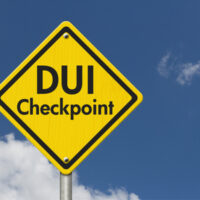Your Rights, and Police Responsibilities, at a DUI Checkpoint

For many years, police officers always needed reasonable suspicion to detain motorists on suspicion of DUI. Reasonable suspicion is basically an evidence-based hunch of criminal activity. In most DUI stops, the defendant committed a traffic violation, like running a stop sign, which drew the officer’s attention.
In the 1990s, the Supreme Court legalized intoxication roadblocks. Checkpoints allow officers to detain motorists even if they do not suspect wrongdoing. However, the driver’s other constitutional rights are unaffected. Furthermore, the checkpoint must adhere to specific legal requirements.
A good Port St. Lucie criminal defense attorney can use deficiencies in either area to overturn a checkpoint arrest. If that happens, the prosecution usually collapses like a house of cards, because of the fruit of the poisonous tree doctrine.
Driver Rights at DUI Checkpoints
Roadblocks suspend the Fourth Amendment’s prohibition of unreasonable searches, provided the checkpoint meets all legal requirements. However, it does not suspend the Fifth Amendment.
This provision includes the right to remain silent during police questioning. So, motorists need not answer even seemingly-innocuous questions. Usually, such questions are calculated to extract damaging information.
The right to remain silent means more than the right to keep one’s mouth closed. It also includes the right to refuse to do most things. At checkpoints, drivers must stop and produce certain documents for inspection, typically a drivers’ license and proof of insurance. However, they need not roll down their windows.
These same rights apply later in the detention process. When officers ask drivers to perform field sobriety tests, like the one-leg stand, drivers have an absolute right to refuse.
Furthermore, drivers have the right to avoid the checkpoint if they chose to do so. That includes the right to turn around when they see a roadblock. Generally, a chase car will shadow such cars, but these officers must have reasonable suspicion to stop such vehicles.
Police Officer Responsibilities at Roadblocks
Officers must respect individual rights at checkpoints. They must also adhere to some legal checkpoint requirements, such as:
- Only people with supervisory power, such as police chiefs and maybe police captains, can authorize roadside checkpoints. Police officers cannot set them up randomly.
- The same supervisor who authorizes the checkpoint must spell out all operational details, such as the place, time, and manner of detaining motorists. For the most part, street officers can have no discretion.
- Supervisors must be mindful of safety when they authorize checkpoints. A roadblock cannot be on a freeway off ramp. Moreover, checkpoints must be set up in places where they are likely to nab drunk drivers. Roadblocks are not a pretext for stopping suspicious characters.
- Detention period must be no longer than a few seconds. That includes the time waiting in line and the time at the checkpoint. If traffic backs up, officers can change the formula. For example, instead of stopping every third vehicle, they could detain every fifth vehicle.
Any violation, no matter how slight, is usually grounds to invalidate the checkpoint and therefore the arrest as well.
Contact an Experienced Lawyer
You have rights, and officers must observe limits, at a DUI checkpoint. For a free consultation with an experienced Port St. Lucie criminal attorney, contact Eighmie Law Firm, P.A. We routinely handle matters throughout the Treasure Coast area.
Resource:
law.cornell.edu/wex/reasonable_suspicion
https://www.eighmielawfirm.com/challenging-the-dui-fsts-in-st-lucie-county/


